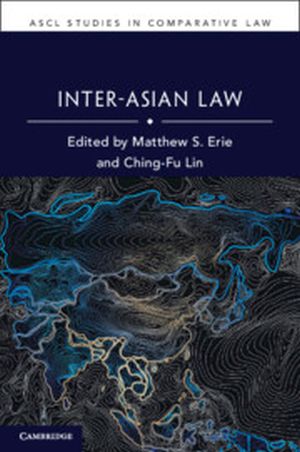
What happens when Western law is no longer the default referent for legal modernity? This is a deceptively simple question, but its implications are significant for such fields as comparative law, international law, and law and development. Whereas much of comparative law is predicated on the idea that modern law flows West to East and North to South, this volume proposes the paradigm of 'Inter-Asian Law' (IAL), pointing to an emerging field of comparative law that explores the legal interactions between and among Asian jurisdictions.
This volume is an experimental and preliminary effort to think through other beginnings and endings for law's movement from one jurisdiction to another, laying the grounds for new interactions between legal systems. In addition to providing an analytical framework to study IAL, the volume consists of fifteen chapters written by scholars from Asia and who study Asia that provide doctrinal and empirical accounts of IAL.